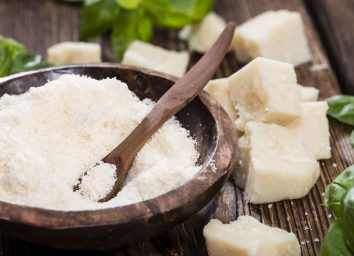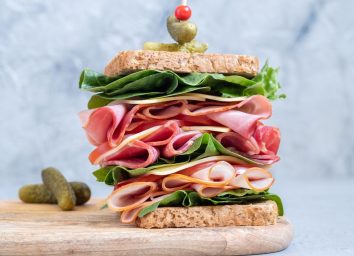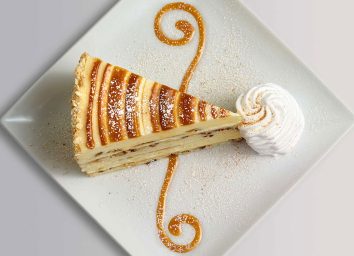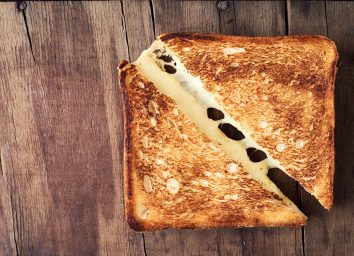Is It Bad to Eat Cheese With Mold On It?
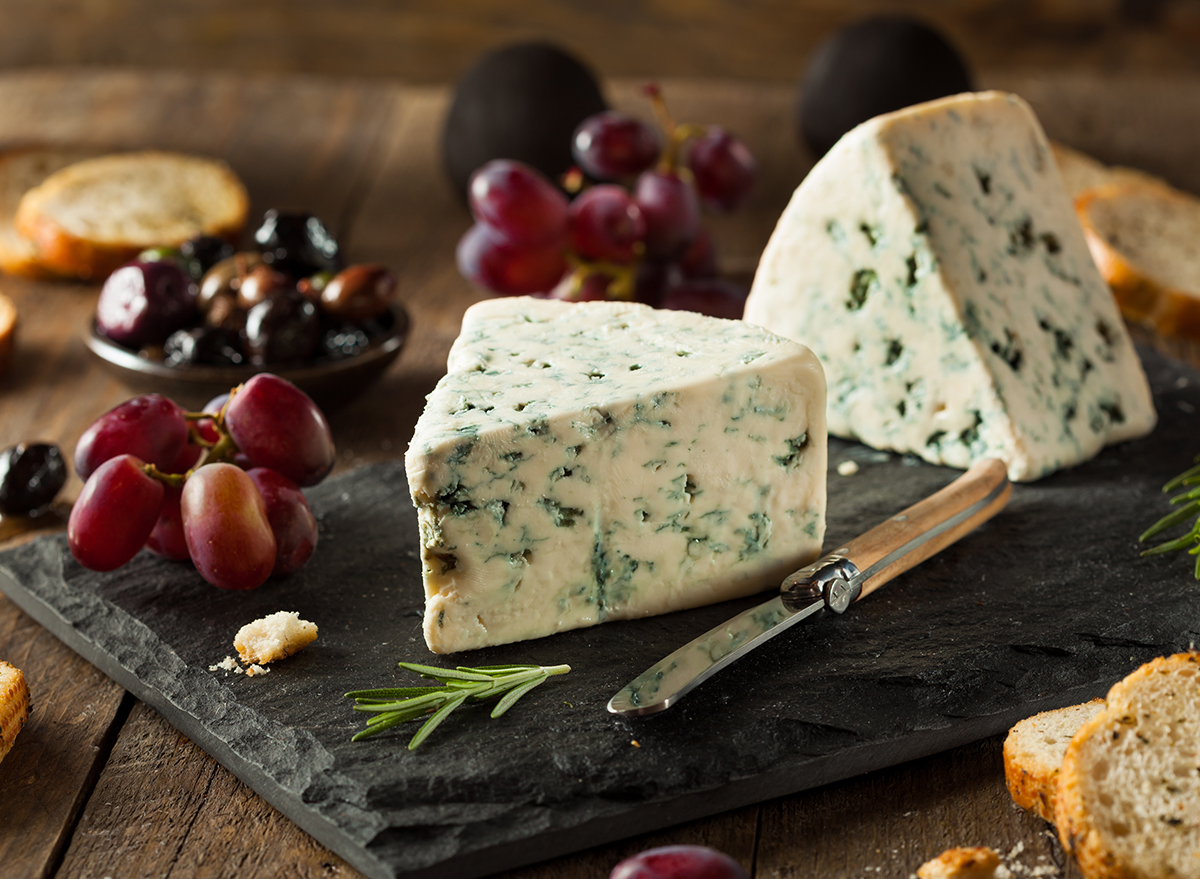
Let's say you're preparing a cheese board for a dinner party and as you're cutting cubes of aged cheddar and Swiss and wedges of Brie, you notice a disturbing, greenish-blue fuzzy patch on one of the cheeses. Your first instinct is one of two options: to either hack off that blemish or just toss out the whole block or wheel of cheese. But…is moldy cheese always a no-go? To better understand what you should do when there is a mold-on-cheese sighting, we consulted Natalie Rizzo, MS, RD, author of The No-Brainer Nutrition Guide For Every Runner.
You spot a speck of mold on a hunk of cheese. Is it safe enough to eat the cheese if you just chop the mold off?
Rizzo says it depends on the type of cheese and whether it's a soft, crumbly cheese or a hard cheese.
"Some molds are used to make cheese, like Roquefort, blue cheese, Gorgonzola, and Stilton. Brie and Camembert have intentional white surface molds," she says. "According to the USDA, the molds used to make these cheeses are safe to eat. If these types of cheeses contain mold that isn't part of the manufacturing, then you must discard and not eat them."
Soft cheeses—which include anything from a crumbled cheese such as feta to ricotta to even cottage cheese or chèvre—must be tossed out if there is any trace of mold—no exceptions. The reason? The mold often contaminates more than what's visible to the eye.
"These soft cheeses have a high moisture content, so the mold is likely contained below the surface and can make you sick," explains Rizzo. "However, if a hard cheese has mold, you can cut off at least one inch around and below the mold spot and wrap in a new cloth."
Mold cannot penetrate into hard cheeses the way that it can spread within soft cheeses, which is why a one-inch deep cut all around should suffice.
What could happen if you eat moldy cheese?
"Eating the wrong type of mold can cause allergic reactions or respiratory problems," says Rizzo. "Some molds produce mycotoxins, which can make you really sick."
According to the Mayo Clinic, if you were to eat a soft cheese with mold, you increase the risk of being exposed to foodborne pathogens such as listeria, salmonella, and E. coli that grow along with the mold. So always make sure you're taking note of what type of cheese you're eating!
